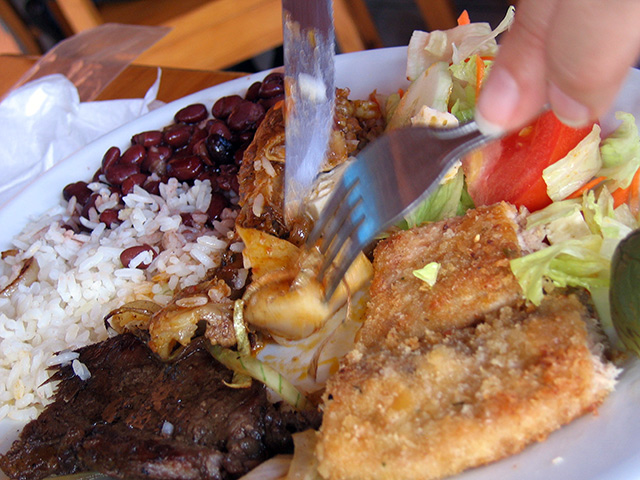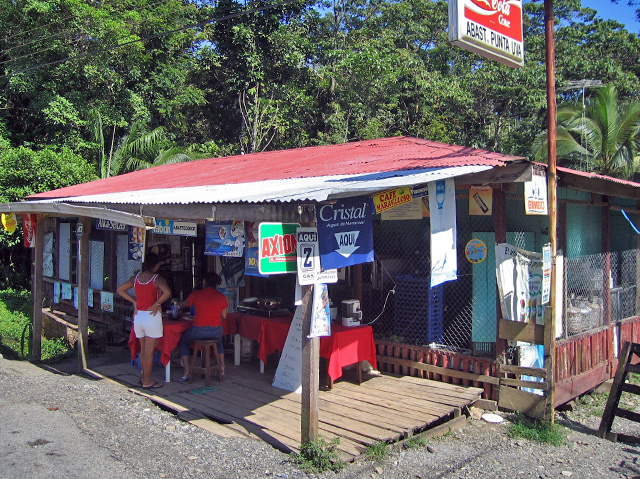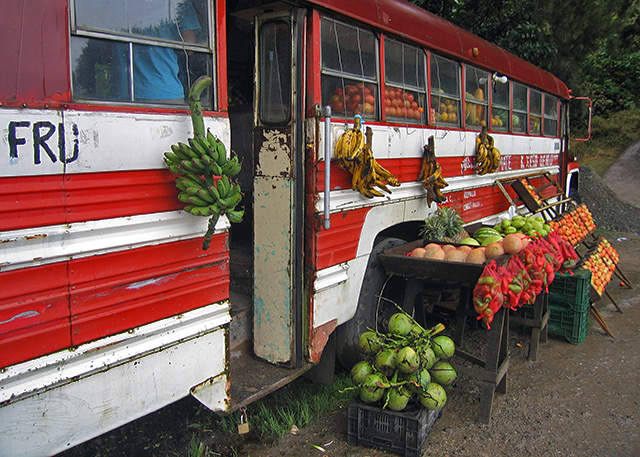This is a guide for athletes traveling to Costa Rica, about what to expect and how to be prepared
For athletes traveling around the world, there are challenges not only finding food that you like, but finding healthy food that can meet your requirements as an athlete. For someone traveling to a new country and culture, this may seem overwhelming. Those who travel from anywhere other than other parts of South America may find it hard to find the foods they are familiar with from home. Sometimes it is just knowing where to look, and knowing some local language to find what you are looking for. This article is to help guide someone who is planning to travel to Costa Rica in their chosen sport, and are required to make some nutrition choices themselves.
Do some research before you go
- Find out about the travel destination. What type of food is eaten in Costa Rica? Are there specific local foods in the region you are visiting?
- Ask other athletes who have been there before, or the event organizers. Are there good places to eat at the venue or nearby?
- Does your accommodation have cooking facilities? Is there a local supermarket nearby for supplies?
- How 'food-safe' are the eating establishments, and is the water safe to drink?
Food in Costa Rica
In Costa Rica, the food may be different from what you expect. Most food is spicy or served with some form of chili. The main nutrient sources are as follows:
- Carbohydrates: tortillas, rice, beans, corn, fruit
- Protein: beans, chicken, eggs, beef and fish
- Fats: mixed meat grills, cheese, pastries and desserts
Bread products are available in most towns, but are usually very sweet meaning there is a higher carbohydrate load than regular bread. Mussanni is a chain of bakery stores found all over Costa Rica. They sponsor one of the local triathletes! Also, packaged corn chips are a common snack food everywhere. For vegetarians, a chain vegetarian restaurant called Vishnu is found throughout Costa Rica.
Some Costa Rican food (called 'Comidas') and drinks:
- Casado - the word means 'marriage', but if you order this off the menu you will usually be served a mix of beans, rice, meat, cabbage salad and pasta. This can be a fairly well balanced meal, although can be high in fats if the meat cut isn't of a high quality.
- Gallo Pinto - the word means ´painted roster, but as food it is a mix of leftover rice and beans, and it is served with almost every meal.
- Frutus Bebidas - mixed fruit drinks served with agua (water) or leche (milk) and comes in a variety of tropical fruit flavours or mixto. This can provide an excellent recovery option, providing a source of carbohydrates (and proteins for the milk version) as well as a good hydration.
 Typical meal with beans and rice
Typical meal with beans and riceWhat if you don't like the local food?
- Don't be afraid to experiment and try local food but be careful with timing around your competition.
- Hotels may provide more 'western' foods, to play it safe pre-competition.
- If there is no food available that you wish to eat, at least eat the rice or bread for carbohydrate energy.
- If you are not eating the meat, chicken, fish or eggs, make sure you find an alternative, such as 1-2 glasses of Sustagen (or similar meal replacement drink) per day.
- Due to the American influence, there are many fast-food restaurants which may have more familiar 'western food'. Be wary of the fat content of these meals, choose wisely.
- If you know you are a particular eater, definitely take some "extras" from home.
 local food cafe
local food cafeSelf-catering Options
When traveling to another country, it is usually cheaper to self-cater. Self-catering is possible in Costa Rica, though most of the places you will stay will not have facilities to enable you to cook your own meals. There are many mini-marts and supermarkets which stock a large range of foods. As English is widely spoken, you may be able to read the labels, or at least there may be someone you can ask. For athletes with food allergies or intolerances you will need to be extra careful. Purchasing snacks to supplement your meals is easy, especially with the amount of fresh fruit available.
 fresh fruit stall in Costa Rica
fresh fruit stall in Costa RicaFood Safety in Costa Rica
- The water from taps is not always safe to drink. To be safe you should drink bottled, boiled or sterilised water only. Always check the seal.
- Avoid ice, and foods washed in local water
- Avoid raw foods, unpeeled fruit, locally washed salads and shellfish
- Be careful with self-preparation of foods
- Avoid local markets and street food where the hygiene looks poor
- Avoid undercooked meat or unpasteurized milk products
- Look for well cooked food that is steaming hot
- Avoid food from buffets that is not very hot or very chilled
- Take live cultures (acidophillus/bifidus) or cultured yoghurt prior to leaving
- If you experience diarrhoea make sure you replace lost fluids and try to avoid further dehydration. Use Gastrolyte powder (or similar rehydration powder) to rehydrate mixed with water &/or a sports drink.
Things you may need to bring from home?
Gels, supplements, medications, gastrolyte or sports drink, favorite snack foods, quality protein snack options if avoiding the protein sources here.
Related Pages
- Sports Nutrition for the Traveling Athlete
- Travel Nutrition Guide for Athletes.
- Costa Rica has a hot climate, so hydration becomes a very important issue.
- Athlete Travel Guide to Mexico
- List of tips for travel – mostly for on the plane
- Food Safety — When traveling, foods and water can be a source of contamination and have the potential to make you sick.
- Guide to watching what you eat while traveling.
- Fitness and Traveling
- Tips For Healthy Restaurant Eating — while traveling you may need to eat at restaurants.
- For information about foods available around the world, read Clare Wood's travel food blog.
- About Sport in Costa Rica


 Upcoming Events
Upcoming Events